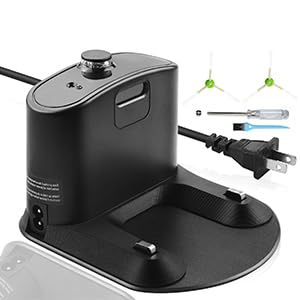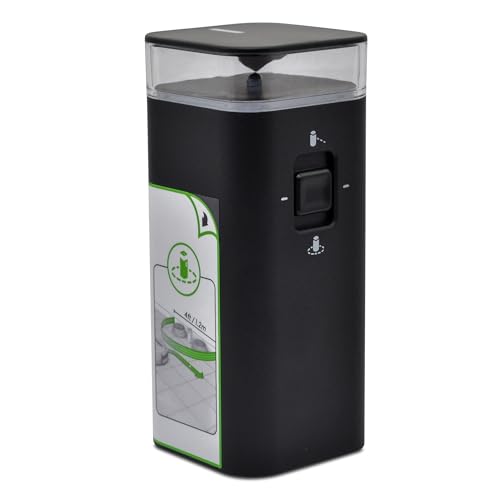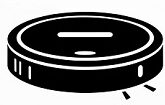The iRobot Roomba E6 is a powerful tool for automated home cleaning, equipped with a virtual barrier feature to intelligently manage its cleaning zones. This technology allows you to block off specific rooms or areas, ensuring the robot only cleans where you want it to. However, it can be a source of frustration when this virtual wall fails to work, allowing your Roomba to venture into restricted spaces. This can disrupt cleaning cycles and undermine the convenience of the device.
If you’re facing this issue, you’re not alone. Fortunately, most problems related to the virtual barrier are solvable with some targeted troubleshooting. This guide will walk you through everything from basic checks to more advanced solutions. We will explore common causes, provide a step-by-step diagnostic process, and offer maintenance tips to prevent future issues, empowering you to restore your Roomba’s boundary-respecting capabilities and get back to effortless cleaning.
What Causes Virtual Barrier Failures?
When a Roomba E6 starts ignoring its designated boundaries, the cause typically falls into one of a few categories. The most frequent complaint is that the barrier works intermittently, creating unpredictable cleaning patterns. This inconsistency is often a symptom of an underlying issue, such as a weak or disrupted signal between the virtual boundary marker and the robot.
Several factors can contribute to this problem. Physical obstacles like furniture, curious pets, or even small pieces of debris can get in the way and block the infrared beam from the marker. Similarly, a low battery in the virtual barrier marker itself is a primary culprit, as it won’t have enough power to emit a strong, consistent signal. On the software side, bugs within the Roomba’s firmware can cause it to misinterpret or ignore signals, a problem that can sometimes appear after an update. Getting to the root of the cause is the first step toward a reliable fix.
A Step-by-Step Guide to Fixing Your Virtual Barrier
Follow these systematic steps, starting with the simplest solutions, to diagnose and resolve the issue with your Roomba E6’s virtual barrier.
Basic Checks and Adjustments
Before diving into complex software resets, it’s crucial to rule out common physical and environmental issues. These simple checks resolve the majority of virtual barrier problems.
Verify Battery Levels
The single most common reason for a failing virtual barrier is a weak or dead battery in the marker. A low battery results in a faint signal that the Roomba cannot consistently detect.
- Action: Open the battery compartment on your virtual boundary marker.
- Solution: Replace the existing batteries with a fresh pair. Even if you believe the batteries have some life left, swapping them out for new ones is a critical diagnostic step. This alone often restores full functionality.
If your virtual barrier’s signal is weak or inconsistent, new batteries are often the simplest solution to restore full functionality.

Official iRobot replacement for precise room control

Affordable dual-mode barrier with status monitoring

Budget-friendly replacement with dual protection modes

Dual-mode control for comprehensive room management
Perfect Your Marker Placement
The position of the virtual boundary marker is essential for its effectiveness. Improper placement can lead to signal interference or create blind spots that the Roomba can slip through.
- Location: Place the marker on a completely flat and stable surface. A tilted marker will not project its beam correctly.
- Clearance: Ensure there is at least 6 inches of clear space on all sides of the marker. Do not place it directly against walls, furniture legs, or other objects.
- Interference: Keep the markers away from large metal objects or highly reflective surfaces like mirrors. These materials can disrupt or deflect the infrared signal, confusing the Roomba’s sensors.
- Range: A single virtual boundary marker has an effective range of up to 16 feet. If you are trying to block off a wider opening, you may need to use an additional marker to create a solid, unbroken barrier.
If you need to block off a wider area or replace a lost/damaged unit, an additional virtual wall can extend your Roomba’s containment capabilities.

Official iRobot product for precise room control and pet area protection

Affordable dual-function barrier with low battery indicator

Wide compatibility with dual mode for doorways and circular zones

Compact design with pet area protection and room division capability
Clear the Environment
Clutter and debris can physically block the signal between the marker and the Roomba. Take a moment to inspect the area where the barrier is set up.
- Action: Remove any toys, shoes, boxes, or other clutter that might be in the direct line of sight of the virtual barrier.
- Test: To confirm if environmental factors are the problem, try testing the virtual barrier in a different, completely open area of your home. If it works there, you know that something in the original location was causing interference.
Software and Connectivity Fixes
If the physical setup is correct, the problem may lie with the software or the connection between your devices. These steps address software glitches and firmware issues.
Update Your Roomba’s Firmware
iRobot frequently releases firmware updates that include bug fixes and performance improvements. An outdated firmware version could be the source of your virtual barrier malfunction.
- Action: Open the iRobot Home app on your smartphone.
- Check: Navigate to your device settings to see if a firmware update is available for your Roomba E6.
- Install: If an update is available, follow the on-screen instructions to install it. Ensure your Roomba is on its charging dock and connected to Wi-Fi during the update process.
Reboot Your Devices
A simple power cycle can often clear temporary software glitches in both the Roomba and the virtual barrier markers.
- Reboot the Roomba: Unplug the charging base from the wall. Wait for 30 seconds to ensure all residual power has dissipated, then plug it back in.
- Reboot the Virtual Barrier: Open the battery compartment on the marker and remove the batteries. Wait for 30 seconds before reinserting them. This forces the marker to restart its internal electronics.
If your Roomba’s charging base is faulty or lost, a replacement ensures your robot can properly charge and receive firmware updates.

Official replacement charging base for Roomba e6 with wide voltage support.

Premium-quality replacement charging base with universal voltage compatibility.

Value-packed charging base with additional accessories and long warranty.

Durable replacement base with authentic parts and strong compatibility.
Leverage the iRobot Home App
The iRobot Home app is a powerful tool not just for scheduling but also for managing and troubleshooting your device.
- Setup: If you haven’t already, use the app to manage your virtual boundaries. The app provides a clear interface for setting them up correctly.
- Diagnostics: The app can sometimes provide alerts or feedback if it detects an issue with a boundary marker, guiding you toward a solution.
When Basic Fixes Aren’t Enough
If you’ve worked through the steps above and your virtual barrier is still not performing correctly, it’s time to move on to more advanced troubleshooting techniques.
Reset the Virtual Boundary Markers
A hard reset can resolve more persistent internal glitches within the marker itself.
- How to Reset: Press and hold the main button on the virtual boundary marker for approximately 10 seconds. You should see the indicator light turn off.
- Reactivate: Release the button and then press it again to turn the marker back on. This process restores the marker to its default state.
Eliminate Signal Interference
Other electronic devices in your home can emit signals that interfere with the infrared communication between the Roomba and its barrier.
- Identify Sources: Potential sources of interference include Wi-Fi routers, Bluetooth speakers, cordless phone bases, and other smart home devices.
- Isolate and Test: Try temporarily turning off or moving these devices away from the Roomba’s path and the virtual barrier marker. Test the barrier again in this controlled environment to see if performance improves. If it does, you may need to permanently relocate either the interfering device or the virtual barrier setup.
Seek External Help
If you’ve exhausted all self-troubleshooting options, the issue might be a faulty hardware component that you cannot fix on your own.
- Contact iRobot Support: The official iRobot customer support team can offer specialized guidance. They can run remote diagnostics and may determine that your Roomba or virtual barrier marker is defective and needs a replacement.
- Consult Community Forums: Online communities and user forums are valuable resources. Other Roomba owners often share their experiences and unique solutions that may not be found in official documentation.
If your virtual barrier is confirmed to be defective after troubleshooting, a new unit is necessary to restore boundary functionality.

Official iRobot replacement with dual modes for room control and pet area protection.

Affordable dual-mode virtual wall with wide beam range for Roomba E6 compatibility.

Broad compatibility and dual modes for room control and pet area protection.

Budget-friendly 1-pack virtual wall with dual modes for basic room control.
Proactive Maintenance for Long-Term Reliability
Consistent performance depends on regular maintenance. By taking a few preventative steps, you can minimize the chances of your virtual barrier failing in the future.
Keep Sensors Clean
Dust and grime on the sensors can obstruct the infrared signals.
- Cleaning Process: Regularly wipe the sensors on your Roomba E6 and the lens on the virtual boundary markers. Use a clean, soft, and dry cloth for this task. Avoid using water, cleaning solutions, or abrasive materials that could scratch the sensors.
Stay Current with Firmware
Always keep your Roomba’s firmware up to date. Enable automatic updates in the iRobot Home app so you receive the latest bug fixes and feature improvements as soon as they are released.
Proper Storage and Handling
How you store and handle your accessories matters.
- Storage: When not in use, store your virtual boundary markers in a cool, dry place to help preserve their battery life and protect their electronic components.
- Handling: Treat the markers with care. Dropping them can damage the internal parts and impact their performance.
Frequently Asked Questions (FAQ)
Why does my Roomba E6 virtual barrier only work sometimes?
Intermittent performance is usually caused by a weak battery in the virtual barrier marker, physical obstructions blocking the signal, or interference from other electronic devices. Start by replacing the batteries and ensuring the marker has a clear line of sight to the Roomba’s path.
How far can the virtual barrier signal reach?
A single iRobot virtual boundary marker has an effective range of up to 16 feet. If you need to block off a wider area, you will need to use a second marker to ensure there are no gaps in the barrier.
Can I reset my Roomba to fix the virtual barrier issue?
Yes, a factory reset can sometimes resolve persistent software glitches. However, this should be done as a last resort after you have already tried updating the firmware and rebooting the device, as a factory reset will erase all your settings and schedules.
Conclusion
While a malfunctioning iRobot Roomba E6 virtual barrier can be disruptive, the problem is almost always solvable. By systematically working through the troubleshooting steps—from checking batteries and placement to updating firmware and performing resets—you can identify and fix the root cause. Proactive maintenance, such as regularly cleaning sensors and keeping firmware current, is key to ensuring long-term reliability. With a little patience and attention to detail, you can restore your virtual barrier’s function and once again enjoy the full, automated cleaning convenience your Roomba was designed to provide.
